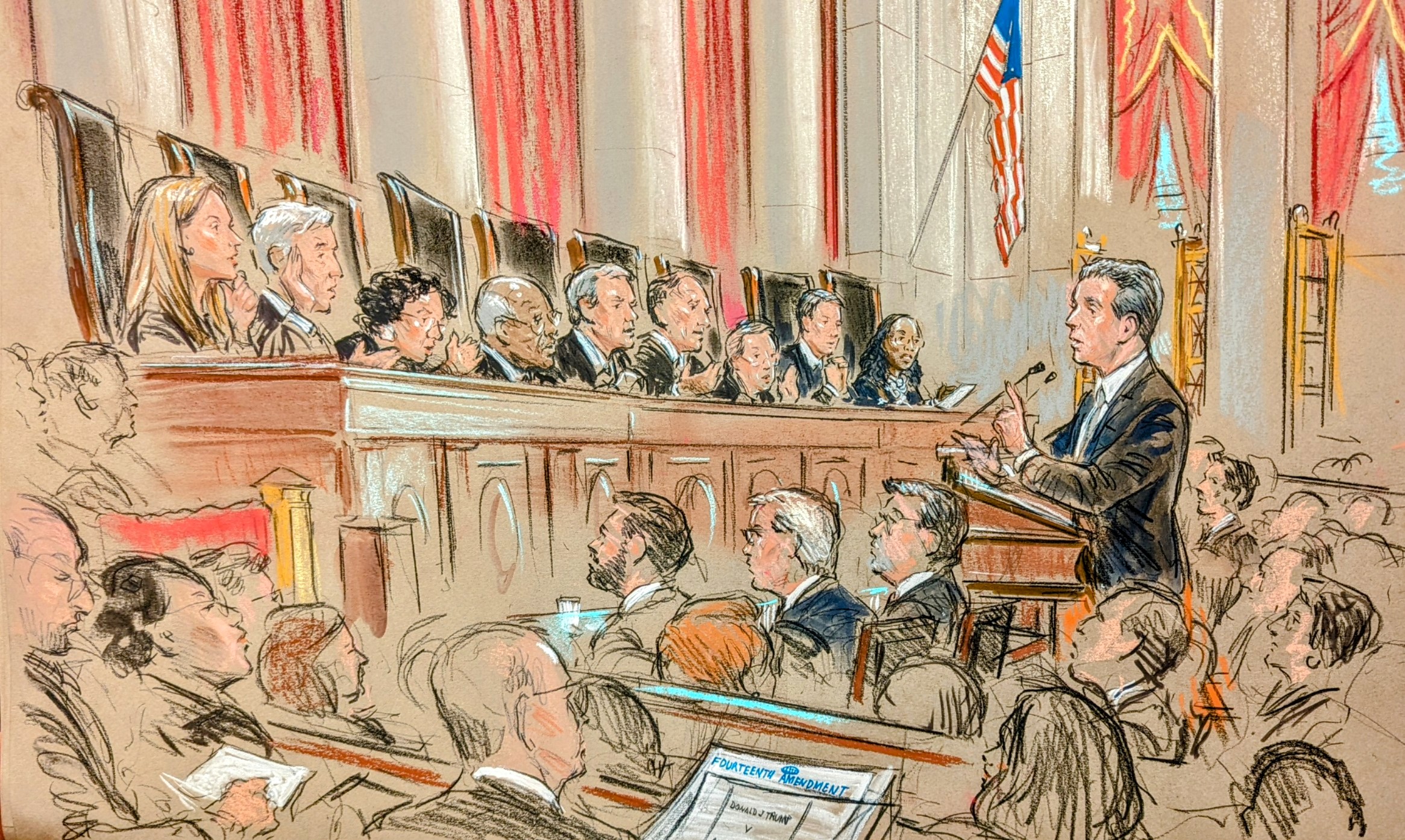Within months of the insurrection on the United States Capitol on January 6, 2021, spearheaded by avid supporters of then-lame-duck president Donald Trump, political scientists and commentators began to speculate on whether a little-known section of the 14th Amendment to the Constitution could be used against Trump for his role in inciting the incident. The 14th Amendment, a Reconstruction amendment protecting citizens' fundamental rights and establishing due process, has gained light for its third section, a paragraph referred to colloquially as the 'insurrection clause':
"No person shall be a Senator or Representative in Congress, or elector of President and Vice-President, or hold any office, civil or military, under the United States, or under any State, who, having previously taken an oath, as a member of Congress, or as an officer of the United States, or as a member of any State legislature, or as an executive or judicial officer of any State, to support the Constitution of the United States, shall have engaged in insurrection or rebellion against the same, or given aid or comfort to the enemies thereof...."
Due to the intention of the insurrection clause to bar individuals from office if they have engaged in "insurrection or rebellion," some have argued that Trump ought to be rendered ineligible for and removed from the ballots of the presidential primary and general elections in 2024. Trump's impeachment by the House of Representatives exactly a week after the incident on account of incitement of insurrection has provided a legal basis for proponents of this argument.
Former president Trump encouraging his supporters to march to the US Capitol Building on January 6, 2021, during the certification of Biden's victory in the 2020 presidential election. (The Washington Post)
The arguments in favor of holding Trump accountable for his actions on January 6 under the insurrection clause ultimately culminated in the case Anderson v. Griswold in Colorado. Filed on September 6, 2023, and with its final decision released on December 19, the Colorado Supreme Court determined that Trump's speech and actions towards his supporters on January 6 constitute insurrection and that Trump is liable for punishment under the 14th Amendment, leading to his removal from the primary election ballot in Colorado.
Maine was quick to follow suit and move to have Trump removed from its primary ballot on the basis of the insurrection clause. But the decisions of both states have not come without swift objection from Trump and his legal team, who sued Norma Anderson and the others responsible for the initial suit of Anderson v. Griswold in a new case known as Trump v. Anderson, approved to be heard and pushed through by the US Supreme Court on January 5, 2024. On February 8, the case underwent oral argument, with the majority of justices displaying a notable lean towards Trump's point of view that he ought to remain on primary ballots.

Sources:
- https://www.theusconstitution.org/litigation/anderson-v-griswold/
- https://www.theusconstitution.org/news/release-colorado-supreme-court-decision-represents-a-win-for-colorado-voters-democracy-and-constitutional-accountability/
- https://www.cnn.com/politics/live-news/supreme-court-trump-ballot-colorado-02-08-24/index.html
- https://www.latimes.com/politics/story/2024-02-08/supreme-court-trump-ballot-insurrection
- https://www.oyez.org/cases/2023/23-719
- https://www.latimes.com/california/story/2023-12-23/governor-newsom-on-trump-california-ballot

2 comments:
When procrastinating my homework last night, I stumbled upon the recording of the Supreme Court's oral arguments. The full video was quite long (3+ hours) but I listened to a few minutes of arguments from Mitchell (Trump's Lawyer) and Murray (lawyer for Colorado voters). Like DJ said, the justices seemed to find a lot more holes in Murray's arguments (although many justices did question Mitchell's claim that the insurrection clause applied to every public office EXCEPT the most powerful one, the presidency). Overall, the discussion seemed oddly focused on the procedures and wording and didn't go too much into IF Jan 6th was an insurrection (though Mitchell maintained that it was a riot and not an organized insurrection).
I agree with Governor Newsom's statement that this is a question that should be decided by an election rather than the Supreme Court. Regardless of the decision they make, the court will look extremely political, and deciding that Trump cannot be on the ballot would probably bring extreme lashback (though him losing an election again would, too).
To build off of Vishal's comment that arguments didn't spend much time on whether January 6th was an insurrection, I think that was because the Colorado case Anderson v. Griswold had already established that Trump had participated in an insurrection.
Post a Comment